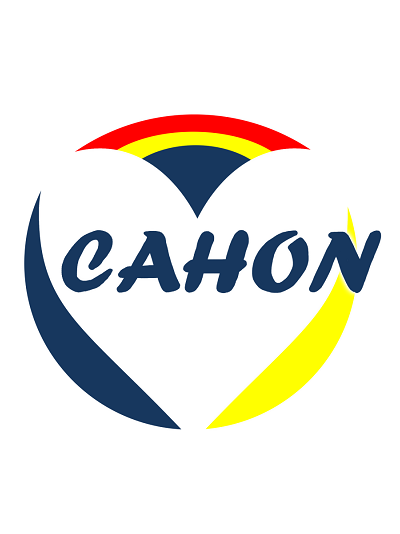Tumor-derived G-CSF induces an immunosuppressive microenvironment in an osteosarcoma model, reducing response to CAR.GD2 T-cells
IF 40.4
1区 医学
Q1 HEMATOLOGY
引用次数: 0
Abstract
Sarcomas are rare, mesenchymal tumors, representing about 10–15% of all childhood cancers. GD2 is a suitable target for chimeric antigen receptor (CAR) T-cell therapy due to its overexpression in several solid tumors. In this preclinical study, we investigated the potential use of iCasp9.2A.GD2.CAR-CD28.4–1BBζ (CAR.GD2) T-cells as a treatment option for patients who have GD2-positive sarcomas and we sought to identify factors shaping hostile tumor microenvironment in this setting. GD2 expression was evaluated by flow-cytometry on primary tumor biopsies of pediatric sarcoma patients. GD2 expression in sarcoma cells was also evaluated in response to an enhancer of zeste homolog 2 (EZH2) inhibitor (Tazemetostat). The antitumor activity of CAR.GD2 T-cells was evaluated both in vitro and in vivo preclinical models of orthotopic and/or metastatic soft-tissue and bone sarcomas. GD2 expression was detected in 55% of the primary tumors. Notably, the Osteosarcoma and Alveolar Rhabdomyosarcomas subtypes exhibited the highest GD2 expression levels, while Ewing sarcoma showed the lowest. CAR.GD2 T-cells show a significant tumor control both in vitro and in vivo models of GD2-expressing tumors. Pretreatment with an EZH2 inhibitor (Tazemetostat) upregulating GD2 expression, sensitizes GD2dim sarcoma cells to CAR.GD2 T-cells cytotoxic activity. Moreover, in mouse models of disseminated Rhabdomyosarcomas and orthotopic Osteosarcoma, CAR.GD2 T-cells showed both a vigorous anti-tumor activity and long-term persistence as compared to un-transduced T-cells. The presence of immunosuppressive murine myeloid-derived suppressor (MDSC) cells significantly reduces long-term anti-tumour activity of infused CAR.GD2 T-cells. Tumor-derived G-CSF was found to be one of the key factors driving expansion of immunosuppressive murine and human MDSC, thus indirectly limiting the efficacy of CAR.GD2 T-cells. Our preclinical data strongly suggest that CAR.GD2 T-cells hold promise as a potential therapeutic option for the treatment of patients with GD2-positive sarcomas. Strategies to tackle hostile immunosuppressive MDSC are desirable to optimize CAR.GD2 T-cell activity.肿瘤源性G-CSF在骨肉瘤模型中诱导免疫抑制微环境,降低对CAR的反应。阻止GD2 t细胞
肉瘤是罕见的间质肿瘤,约占所有儿童癌症的10-15%。GD2是嵌合抗原受体(CAR) t细胞治疗的合适靶点,因为它在几种实体肿瘤中过表达。在这项临床前研究中,我们研究了iCasp9.2A.GD2.CAR-CD28.4-1BBζ (CAR.GD2) t细胞作为gd2阳性肉瘤患者的治疗选择的潜在用途,并试图确定在这种情况下形成敌对肿瘤微环境的因素。用流式细胞术检测小儿肉瘤患者原发肿瘤活检中GD2的表达。GD2在肉瘤细胞中的表达也被评估为对zeste homolog 2 (EZH2)抑制剂增强剂(Tazemetostat)的反应。CAR的抗肿瘤活性。GD2 t细胞在原位和/或转移性软组织和骨肉瘤的体外和体内临床前模型中进行了评估。55%的原发肿瘤中检测到GD2表达。值得注意的是,骨肉瘤和肺泡横纹肌肉瘤亚型的GD2表达水平最高,而尤文氏肉瘤的GD2表达水平最低。的车。在体外和体内表达GD2的肿瘤模型中,GD2 t细胞都显示出显著的肿瘤控制作用。EZH2抑制剂(Tazemetostat)预处理上调GD2表达,使GD2dim肉瘤细胞对CAR敏感。GD2 t细胞的细胞毒活性。此外,在弥散性横纹肌肉瘤和原位骨肉瘤的小鼠模型中,CAR。与未转导的t细胞相比,GD2 t细胞显示出强大的抗肿瘤活性和长期持久性。免疫抑制小鼠髓源性抑制细胞(MDSC)的存在显著降低了注入CAR的长期抗肿瘤活性。阻止GD2 t细胞。肿瘤来源的G-CSF被发现是驱动免疫抑制小鼠和人MDSC扩张的关键因素之一,从而间接限制了CAR的疗效。阻止GD2 t细胞。我们的临床前数据强烈提示CAR。GD2 t细胞有望成为治疗GD2阳性肉瘤患者的潜在治疗选择。解决敌对免疫抑制MDSC的策略是优化CAR的理想选择。GD2 t细胞活性。
本文章由计算机程序翻译,如有差异,请以英文原文为准。
求助全文
约1分钟内获得全文
求助全文
来源期刊
CiteScore
48.10
自引率
2.10%
发文量
169
审稿时长
6-12 weeks
期刊介绍:
The Journal of Hematology & Oncology, an open-access journal, publishes high-quality research covering all aspects of hematology and oncology, including reviews and research highlights on "hot topics" by leading experts.
Given the close relationship and rapid evolution of hematology and oncology, the journal aims to meet the demand for a dedicated platform for publishing discoveries from both fields. It serves as an international platform for sharing laboratory and clinical findings among laboratory scientists, physician scientists, hematologists, and oncologists in an open-access format. With a rapid turnaround time from submission to publication, the journal facilitates real-time sharing of knowledge and new successes.

 求助内容:
求助内容: 应助结果提醒方式:
应助结果提醒方式:


